As Boston College’s institutional repository, eScholarship@BC showcases and preserves the scholarly output of the University. Archiving the publications of its research centers is an important part of that. Currently, there are over 1300 works in eScholarship@BC from research centers on campus. These include articles, reports, working papers, e-books, and videos. Over the past year, the library has reached out to many centers and has added substantially to these collections.
Here are highlights of recent additions to eScholarship@BC from research centers:
Center for Retirement Research
eScholarship@BC now has a comprehensive collection of reports and working papers from the Center for Retirement Research (CRR), ranging from 1999 to present. The topics covered in these publications include Social Security, state and local pensions, health/long-term care, financing retirement, and older workers. The total collection now includes 371 working papers and 315 reports, including their “Issue in Brief” and “State and Local Pension Plans” series. For more information about CRR, please visit its website.
TIMSS & PIRLS International Study Center
A collection of fifty publications from the TIMSS & PIRLS International Study Center was also added to eScholarship@BC in the last year. For two decades, TIMSS & PIRLS has published research related to its assessments of student achievement around the world. TIMSS & PIRLS is based at the Lynch School of Education and is a part of the International Association for the Evaluation of Educational Achievement. In addition to the electronic copies in eScholarship@BC, the library also now has print volumes of these resources in our collections. For more information about TIMSS & PIRLS, please visit its website.
Center on Wealth and Philanthropy
In the spring of 2015, we added to our existing collection of works from the Center on Wealth and Philanthropy (CWP), in anticipation of its closure later that year. In total, there are now 70 publications from the center, including reports, statistics, and working papers. These works represent many decades worth of research and scholarly output from the center regarding philanthropy. Even though the center is now closed, this digital content will continue to be preserved by the library for the long term.
Church in the 21st Century Center
Over the years, the library has also worked with the Church in the 21st Century center (C21) to archive and provide additional access to the center’s online webcasts of C21-sponsored events on campus as well as other publications. The collection of C21 webcasts in eScholarship@BC currently includes over 200 videos (from 2011 through 2014, plus select videos from the 2000’s). The eScholarship@BC team is continuing to work with the center to add additional videos and to develop this collection further going forward. In addition to the material in eScholarship@BC, the library has also archived the C21 Resources magazine on newspapers.bc.edu. For more information about C21, please visit its website.
In addition to the recent work with these centers, eScholarship@BC also includes publications from other centers, including the Center for Human Rights and International Justice, the Center on Aging & Work (262 publications), and the Sloan Work and Family Research Network (75 papers). For more information about eScholarship@BC’s collaboration with Boston College research centers, please feel free to visit the eScholarship@BC website or contact Emily Toner (emily.toner@bc.edu), eScholarship Repository Librarian.
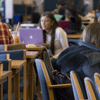
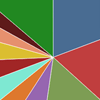






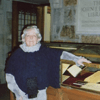



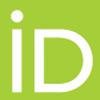


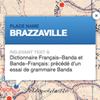



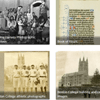

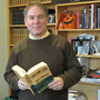
 Did you know that the John J. Burns Library holds a sizable collection of British author Graham Greene’s correspondence, literary manuscripts, papers, and even his personal library? We do and we are excited to announce that it is once again open to researchers! The Graham Greene papers and personal library were first acquired by the Burns Library in 1995, and we worked quickly to make the content available for use as soon as possible. Over the years, we acquired more material and hastily provided access, but the collections became unruly to use and the indexes (“finding aids”) weren’t available online. Recently, we set to work to make things better.
Did you know that the John J. Burns Library holds a sizable collection of British author Graham Greene’s correspondence, literary manuscripts, papers, and even his personal library? We do and we are excited to announce that it is once again open to researchers! The Graham Greene papers and personal library were first acquired by the Burns Library in 1995, and we worked quickly to make the content available for use as soon as possible. Over the years, we acquired more material and hastily provided access, but the collections became unruly to use and the indexes (“finding aids”) weren’t available online. Recently, we set to work to make things better.
